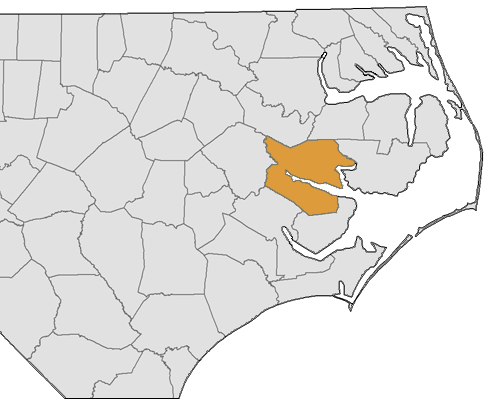Communities
RISE29 is building capacity to support all 29 counties in ECU’s service region. These 29 counties include Beaufort, Bertie, Camden, Carteret, Chowan, Craven, Currituck, Dare, Duplin, Edgecombe, Gates, Greene, Halifax, Hertford, Hyde, Jones, Lenoir, Martin, Nash, Northampton, Onslow, Pamlico, Pasquotank, Perquimans, Pitt, Tyrrell, Washington, Wayne, and Wilson are faced with greater economic, education and health disparities due to their local population and lack of resources.
As RISE29 grows, so will its community reach. Get in touch with RISE29 to learn how your community can participate in the program. Read more about the communities RISE29 partners with and the ongoing projects in these counties.
Beaufort County

Located on the Pamlico River, Beaufort County was established in 1705 before receiving its formal name in 1712. The county was named after Henry Scudamore, the Third Duke of Beaufort and one of the state’s Lords Proprietors. The city of Washington serves as the county seat. The county evolved out of the 1700s-colonial trading port of Bath into an international production center, becoming a major hub for the creation and development of aerospace equipment, metal works, and agricultural grain crops, among other industries. Natural water features, including the Tar and Pamlico rivers and the Pamlico Sound, played key roles in the development of Beaufort County’s economy. The county served as an early port during the 18th century and hosted a major railroad hub in the early 1900s. The county is home to seven municipalities, including Aurora, Bath, Belhaven, Chocowinity, Pantego, Washington, and Washington Park. Beaufort County operates under a county manager government including a seven-member board of commissioners.
Hyde County
Established in 1705 out of Bath County, Hyde County was chartered as Wickham Precinct before becoming Hyde Precinct seven years later. The precinct’s name was officially changed to Hyde County, after former governor Edward Hyde, in 1739 when Bath County was abolished. The community of Swan Quarter serves as the county seat. While Hyde County’s population is just shy of 6,000, the county draws many tourists. Ocracoke hosts the largest number of visitors, as tourists come to see its lighthouse and location on the Outer Banks. The county is also recognized for its four wildlife refuges, including the Alligator River, Mattamuskeet, Pocosin Lakes, and Swanquarter National Wildlife Refuge. Hyde County’s largest economic sectors include agriculture, commercial fishing, and tourism. The county is home to several municipalities including Engelhard, Fairfield, Germantown, Last Chance, Nebraska, Ocracoke, Scranton, and Stumpy Point. Hyde County operates under a county manager government including a five-member board of commissioners elected across its five unincorporated townships.

Martin County

Established in 1774 out of Halifax and Tyrrell counties, Martin County was named for Josiah Martin, the last royal governor of North Carolina. Despite Martin’s tumultuous relationship with the royal colony, the county kept its name in honor of prominent Federalist Alexander Martin. Williamston serves as the county seat. The Roanoke River acted as an important trade route through Martin County, allowing the county’s industries in tar, pitch, turpentine, forest, and meat products to grow the county in its early development. Today, 51 percent of Martin County’s total acreage is classified as farmland. The county has seen an influx of naturalists for hunting and fishing recreation, while the region remains an opportune spot for industrial, small business, and agribusiness growth. Other communities located in Martin County include Bear Grass, Darden, Everetts, Gold Point, Hamilton, Hassell, Jamesville, Oak City, Parmele, and Robersonville. Martin County operates under a county manager government that includes a five-member board of commissioners elected across eastern and western districts.
Pitt County
Pitt County got its name from William Pitt, Earl of Chatham. William Pitt was an English statesman and orator, born in London, England, UK. He studied at Oxford University and in 1731, Pitt joined the army. Pitt led the young “Patriot” Whigs and in 1756 became secretary of state, where he was a pro-freedom speaker in British Colonial government. Pitt County was founded in 1760 under British Colonial government. Prior to 1760, there was one large county, Beaufort, which was split into five smaller counties, Pitt County being one of those smaller counties. Since 1970 Pitt County has operated under County Manager government. The mission of Pitt County Government is to enhance the health, safety, and well-being of our community by advocating for and providing quality services in a friendly and cost-effective manner. The vision is “A Leader in the State; Best in the East”. Pitt County Government believes its purpose is public service. It encourages honesty and behavior consistent with its mission, recognizes and promotes competence, excellence, and open communication, maintains an open government that is a good steward of public resources and supports decision making that is deliberate, conscientious, and based on fact.

